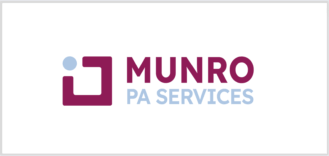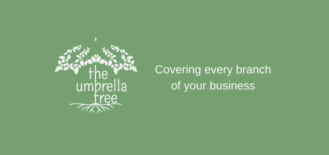This is a Virtual Assistant case study and interview with Nikki Ince. Nikki is the owner of Willow Social, a Virtual Assistant company based in Essex. She initially only provided onsite admin support to local businesses but went fully virtual in 2013 and now provides social media support to small businesses and entrepreneurs. This is her VA story.
What did you do for a living before you became a Virtual Assistant?
I worked as an office manager and held various office admin roles within the financial services sector. I began my career as an Office Junior and moved through the ranks, taking on PA responsibilities before eventually managing the office.
My background in organisation, client support, and time management provided the perfect foundation for my Virtual Assistant work, allowing me to support clients with the efficiency and attention to detail I developed over the years.
When did you first hear about VAs or became aware they even existed?
In my first year, I was still providing onsite admin support to local businesses and had only a vague idea of Virtual Assistants and how they operated.
It was during some online research that I came across the VA world, and I was intrigued by the concept.
I joined a few Virtual Assistant groups on Facebook, including your VA Handbookers group, and they really opened my eyes to the versatility and skill within the VA industry.
I loved the idea of helping business owners reach their goals, all while working from home with greater flexibility.
What was the trigger for you becoming a VA?
After 20 years of commuting to London, I was ready for a change and felt it was time to focus on something I wanted to do.
My sister, who runs her own graphic design business and a local networking group, invited me to one of her meetings. During the session, I heard many small business owners mention their need for occasional admin support but not enough to hire a full-time employee.
That really resonated with me—I love admin, helping people, and getting things done—so I knew that becoming a Virtual Assistant would be a perfect fit.
Did you just leave your job or start VA-ing gradually?
I took some time out to plan my next steps before fully setting up as a VA. Then I started with onsite work for a couple of local businesses—helping one with social media and another with admin support.
Where did you find the help or advice you needed when setting up?
My local council offered free training courses and support for small businesses, which was invaluable as I got started.
I also spent time researching online and joined a few VA Facebook groups, which became a fantastic source of information and community support. Another resource was your website, where I found practical guidance that really helped me.
Who was your first client?
My first client was a local business that needed help managing their social media presence. I enjoyed the experience immensely, and it quickly became clear that social media was an area where I could really support small business owners.
Do you have a niche?
For a long time, I felt I didn’t have a specific niche since I worked with clients from various industries, completing a wide range of admin tasks. I did feel the pressure to define a niche, which was challenging because I enjoyed the variety and learning that came with different projects.
Fast forward to 2020 and the pandemic, which was a turning point for many.
During lockdown, I took the opportunity to focus on social media and Canva, which led to a rebrand and a shift in my services. I moved away from general admin and focused more on social media support, especially for clients who struggle with tech.
Now, I specialise in creating content in Canva and managing social media scheduling for small business owners.
How would you say you were different from other VAs?
That’s a good question, as I think every VA brings a unique mix of skills and perspectives to client support.
My key focus is helping small business owners with their Facebook pages and creating eye-catching, effective content in Canva.
I work with clients who are often not very tech-savvy or are time-poor, so I focus on simplifying social media for them—taking on everything from content creation to scheduling.
I aim to offer a hands-on, personalised approach that helps clients feel supported and confident in their online presence.
 What’s the best thing about being a VA?
What’s the best thing about being a VA?
The flexibility is definitely the best thing about being a VA!
While I try to stick to a routine, I love that I have the freedom to start later or finish early if needed, which allows me to balance work and personal life more easily.
Being a VA has also opened doors to new opportunities for learning.
For example, I never imagined I would be creating my own website, but it’s something I’ve learned to do as part of my business growth.
That sense of personal achievement has been incredibly rewarding.
What’s the hardest thing about being a VA?
In the beginning, the hardest part was understanding how to work effectively with businesses remotely and figuring out the right tools to use. There’s a lot to learn when setting up the systems that allow you to work efficiently and professionally.
Imposter syndrome has definitely kicked in at times, and it can feel like a real confidence dip. But over time, I’ve learned how important it is to believe in myself and my abilities, especially when facing new challenges.
Trusting in what I can offer has been key to overcoming those moments of doubt.
How virtual are you?
In the early days, I worked onsite with a few clients, and up until 2020, I also worked in a local business centre alongside other small business owners.
Since then, I’ve been completely virtual, working from home.
How do you find your clients?
I find my clients through a combination of networking, social media, and my website.
How do you manage your personal/work life balance?
Pretty well. I appreciated the structure of a 9-5 routine when I was an employee, so I’ve tried to maintain that in my own work.
I make a point of not working weekends or bank holidays, and if I do need to, it’s usually just on my own tasks. With everything being online, if something pops into my head while I’m watching TV, I can quickly jump onto Trello or Canva to get it out of my head.
How do you manage your clients and their expectations?
I believe communication and honesty are key. It’s important to fully understand what is required to complete a task or project, so I always make sure I’m clear on the client’s needs.
At the same time, I ensure the client knows what I expect from them in terms of information, timelines, and any input needed.
Setting clear expectations from the start helps to avoid misunderstandings and keeps everything running smoothly.
What technology, websites, or apps are invaluable to your working life?
Trello, Canva, Google Workspace, Meta Business Suite, ChatGPT, LastPass, Payhip, MailerLite, Stripe, WordPress, and Zoom.
Would you do anything differently if you had to start again?
I would have had the confidence to say no more often and trust my gut. It’s all part of the learning process, but I’ve learned that it’s important to stick with it.
I’ve really enjoyed learning new skills, and while it has been frustrating at times, it’s incredibly rewarding to accomplish things that I wouldn’t have had the chance to do as an employee.
What advice would you give to anyone considering becoming a VA?
Do your research and be prepared to put in the work, as it takes time to develop and build your business.
Transitioning from being employed to self-employed can be tough because you’re responsible for every aspect of your business. However, there are websites and resources available to guide you through this process.
Check out training for becoming a Virtual Assistant, as well as specific technical skills. There are many courses out there, but it’s easy to get overwhelmed by promotional emails, so I recommend doing your research.
Join VA groups and forums—these are great places to ask questions and gather useful information on a wide range of topics. I’ve found that Virtual Assistants are friendly, supportive, and always willing to offer great advice.
Make sure you have basic systems and paperwork in place, such as terms and conditions, contracts, and invoices. This way, when you start receiving enquiries and clients, you’ll be ready to go.
Try not to compare your VA business to others.
It’s easy to feel overwhelmed when looking at other VA websites and social media accounts, but remember to focus on your own journey.
When self-doubt creeps in, remind yourself why you chose to become a VA and have confidence in your abilities and skills.
Connect with Nikki Ince on Facebook.
Ready to set up your business?If you were inspired by Nikki’s story, then sign up for my flagship DIY VA course and start your own journey today. With lifetime access and an incredible trainee-only support group, I hold your hand through the entire process and support you all the way. |
 |





Hi Nikki, found your interview really interesting and as with Rhona the techie stuff was really useful. I’ll definitely be checking those out – key in a digital world.
Hi Nikki – looking into working as a VA and found your interview extremely interesting with lots of helpful tips!
I find for myself, the most useful part of this interview with Nikki is the technology, websites and apps available! I always check them out because I didn’t know half of them even existed. I have learnt so much. Many thanks